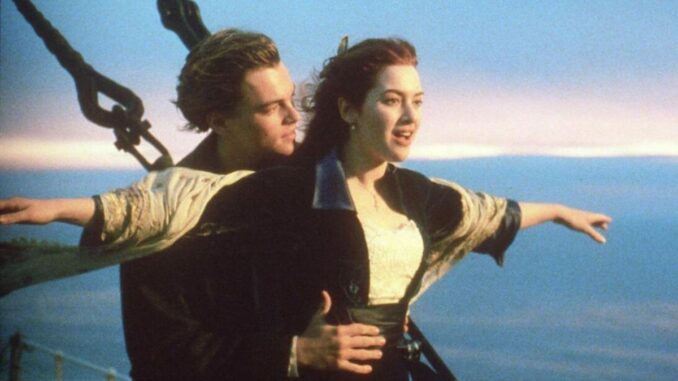
The Titanic Kiss: Modern CGI and Millennial Angst
James Cameron's Titanic is a cultural touchstone, a melodramatic masterpiece that defined romance for a generation. Central to its enduring appeal is the iconic "I'm flying!" kiss on the bow of the ship, a symbol of youthful exuberance and forbidden love against a breathtaking (and ultimately doomed) backdrop. But what if Cameron, armed with modern CGI and a sensibility shaped by contemporary anxieties, revisited that scene today? The result wouldn't just be a technical upgrade; it would be a fundamental reimagining, reflecting a world far removed from the pre-millennial optimism of 1997.
Firstly, the backdrop itself would undergo a radical transformation. Instead of the painstakingly crafted miniature model and matte paintings, we'd be treated to a fully realized CGI North Atlantic. The ocean wouldn't be merely turbulent; it would be a churning, photorealistic spectacle, reflecting the chaos of the digital age. Forget the romantic, ethereal mist; we'd likely see waves rendered with individual droplets, each glinting with simulated sunlight. This heightened realism, while visually stunning, would inadvertently amplify the impending doom, turning the kiss into a bittersweet, almost macabre tableau.
But the biggest changes wouldn't be in the scenery, but in the characters themselves. In the original, Jack and Rose are presented as archetypes: the impoverished artist and the stifled aristocrat, their love a defiant act against societal constraints. Today, however, their dialogue would be laced with a self-awareness born of internet irony and meme culture.
Imagine: as Jack pulls Rose to the bow, instead of the pure, unadulterated joy, we might get a hesitant, "Okay, but if I fall, you're totally going to 'Draw me like one of your French girls' for Instagram, right?" Rose, instead of simply closing her eyes and surrendering to the moment, might quip, "Just so you know, if this goes south, I'm suing the White Star Line for emotional distress." This self-referential humor, while perhaps endearing to a modern audience, would strip away the genuine, albeit idealized, romance of the original scene.
Furthermore, the intensity of the moment would be tempered by contemporary anxieties. Instead of focusing solely on the freedom and exhilaration, we might see subtle visual cues hinting at the environmental impact of the ship, perhaps a quick shot of oil slicks or the displacement of marine life. The kiss, instead of being a celebration of human connection, would become a symbol of humanity's reckless ambition, a fleeting moment of joy juxtaposed against a backdrop of ecological destruction.
The kiss itself might even be digitally enhanced. Imagine Cameron employing de-aging technology to subtly smooth out DiCaprio and Winslet’s features, making them appear even more youthful and conventionally attractive. Special effects could enhance the billowing of Rose’s hair, the sparkle in Jack’s eyes, even the subtle blush on their cheeks. This hyper-realism, while technically impressive, would ironically feel less authentic, more manufactured and less genuine.
Finally, the music would undoubtedly reflect this shift in tone. Instead of James Horner's soaring, almost saccharine score, we might hear a more contemporary, melancholic melody, perhaps infused with electronic elements, subtly underscoring the fragility of the moment. The music, rather than inspiring hope and optimism, would serve as a constant reminder of the impending tragedy.
In conclusion, while modern technology could undoubtedly create a visually spectacular version of the Titanic kiss, the heart of the scene – the raw, unfiltered emotion – would inevitably be lost in translation. By replacing genuine emotion with self-aware humor, and amplifying the anxieties of the modern age, Cameron's hypothetical remake would become a reflection of our own cynicism and uncertainty, a far cry from the romantic ideal that captivated audiences over two decades ago. The "I'm flying!" scene, stripped of its original innocence, would become a poignant reminder of how our perception of love and life has irrevocably changed, leaving us not with a sense of hope, but with a lingering unease about the future.
